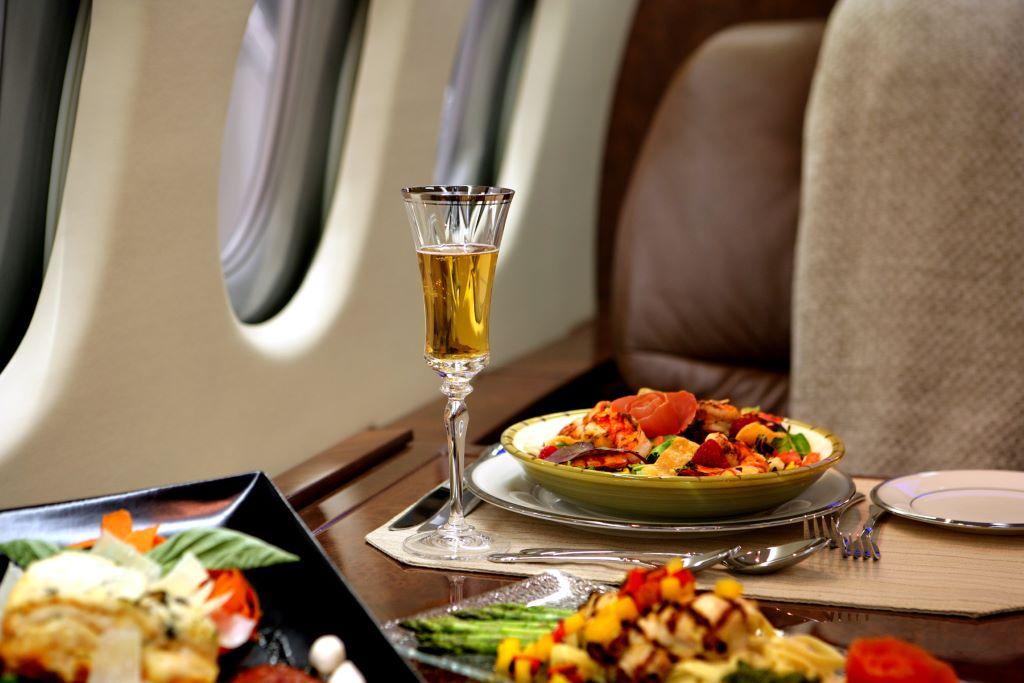
During the darkest days of Covid, many airlines stopped serving alcohol to passengers. Angry passengers believed that they couldn’t be forced to wear a mask and they couldn’t be denied a drink. Now, masks are gone and drinks are back.
Pilots and flight attendants have always had to deal with the question of “how much is too much?” In the charter world, crews know that the customer paid a princely sum for the privilege of a private flight—and these customers may want to celebrate to excess.
Like airlines, Part 135 charter operators and Part 91 flights are subject to stringent Federal Aviation Regulations on boarding intoxicated passengers and serving alcohol during a flight. Operators and crewmembers that violate the regulations face FAA certificate action.
Regulation 14 C.F.R. § 91.17 Alcohol or Drugs states: Except in an emergency, no pilot of a civil aircraft may allow a person who appears to be intoxicated…to be carried in that aircraft.
The regulation places a single judgment call with the pilot in command (PIC)—does the passenger appear intoxicated? It does not let the PIC decide whether the safety of the flight is compromised by carrying a visibly intoxicated passenger.
A pilot discovered this by flying some intoxicated friends home after a $100 hamburger lunch. His personal knowledge of their intoxicated behavior did not prevent the NTSB from affirming a violation of § 91.17 and suspending his private pilot certificate for 60 days. In addition to the § 91.17 violation, the safety board also agreed with the FAA that the pilot was “careless or reckless” in violation of § 91.13.
Part 135 charter operators have requirements in addition to being prohibited from boarding intoxicated passengers. On charter flights, all alcoholic beverages must be served by the certificate holder, and the certificate holder must “cut off” passengers who become visibly intoxicated.
The regulation does not prevent passengers from bringing their own alcohol, but it does require that the certificate holder dispense it. This is intended to give the charter operator complete control over passenger alcohol consumption.
Through legal interpretation, the FAA stated that the certificate holder may provide a non-required crewmember (“hostess”) to serve alcoholic beverages. On flights without a flight attendant or hostess, operators and crewmembers must decide how they will dispense these beverages. A passenger briefing concerning alcohol consumption, such as “help yourself!” does not fulfill the requirements of FAR § 135.121 Alcoholic Beverages.
In addition to FAA enforcement actions, pilots and charter operators expose themselves to tort liability based on negligence for violating the FARs. If a passenger or crew member is injured by another intoxicated passenger or the intoxicated passenger causes or contributes to an aircraft accident, charter operators and pilots can expect a lawsuit. A civil damage judgment may be awarded in addition to the assessment of an FAA fine or certificate action. This is not a constitutional double jeopardy violation, because double jeopardy does not apply to civil proceedings.
The lawsuits, or alleged lawsuits, run the gamut from “passenger sues airline for making him so drunk he beat up his wife” to a tragic Part 135 floatplane accident believed to have been caused by a drunk passenger kicking the pilot’s seat forward, which slammed the pilot into the control panel and caused an unrecoverable dive. News reports stated that the passengers’ families filed lawsuits against the deceased pilot’s estate and the aircraft operator and claimed that the operator failed to ensure that the passengers were not intoxicated when they boarded the aircraft.
In a civil case alleging wrongful death or monetary damages, the cause of action arises under state law. In a case against an airline from the 1980s, a New York State court found for a plaintiff who was assaulted by an intoxicated passenger. The court held that a FAR violation may give rise to a separate cause of action because the regulations were intended to protect passengers and crew from being injured by intoxicated travelers.
Another court noted that the standard of care is generally defined by the violated FAR provision. For example, it would be harder for a plaintiff to show that a pilot or operator was negligent in boarding a passenger that was drunk but that did not appear intoxicated because the FARs state that a pilot or operator may not board visibly intoxicated passengers.
Many aircraft insurance policies now include some coverage for host liquor liability. However, this is not “standard” and if your operation serves alcohol in flight, then you should examine your coverage with your insurance broker.
Corporate and charter passengers pay handsomely for their private flights and they expect a high level of pampering and comfort on their flights. Serving them the fine spirits that they expect forces pilots and charter operators to carefully weigh the risks of when and how to say no more.





